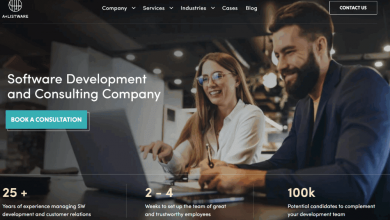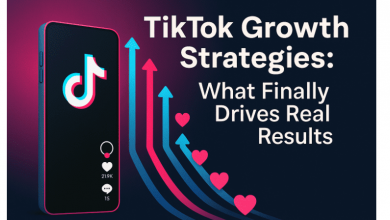From Startups to Scaleups: The Non-Negotiables of Building Trust in SaaS

Building a SaaS company is like dating in a post-Tinder world. You get one shot to make an impression, and if your product doesn’t feel safe, reliable, and worth a long-term commitment, you’re getting ghosted faster than you can say “freemium.” Whether you’re a scrappy startup or a scale-hungry SaaS machine, one thing is brutally clear: trust is everything. And no, we’re not talking about smiling testimonials and shiny UI—we’re talking about what’s under the hood. Your security, your transparency, your track record.
Right out of the gate, if you’re not thinking about software security, you’re already playing a dangerous game. We’re not in 2010 anymore—your buyers have evolved. They’re tech-savvy, privacy-conscious, and allergic to risk. You might have a product that solves a real problem, but if your stack leaks like a sieve or your data handling practices are “don’t ask, don’t tell,” you’ll never make it past procurement.
MVPs Are Cute, But Are They Safe?
Everyone loves a good MVP story. Founders grinding away in hoodies, pushing features at lightning speed, and raising money on napkin sketches. But here’s the part that never gets romanticized—security debt. Rushing to ship is fine until you realize your shortcut codebase can’t handle a real-world user load, let alone a SOC 2 audit. At that point, the “move fast” motto turns into “patch faster,” and that’s not exactly sexy to investors or clients.
Buyers today aren’t just buying a product—they’re buying into your infrastructure. They want to know where their data’s going, how it’s protected, and whether your devs have even heard of role-based access control. Skimping on security might save you a sprint or two, but it’ll cost you everything when enterprise clients start poking around your documentation.
Startups that bake security into their core product thinking from day one? They scale smoother, close faster, and sleep better. The rest? They’re just praying the next email isn’t from a bug bounty hunter—or worse, a breach victim.
Security Isn’t a Feature—It’s Foreplay
You know what’s more seductive to a CTO than your fancy new AI widget? Knowing their data won’t end up in a hacker’s GitHub repo. Trust is an aphrodisiac in B2B. It’s what keeps people loyal, keeps churn down, and keeps your sales cycle from dragging into the abyss of compliance back-and-forths.
And here’s where most SaaS companies mess up—they treat security like it’s something you sprinkle in later, like parsley on a plate. Wrong. Security needs to be cooked in from the start. It’s the garlic, the oil, the base of the damn dish. Because let’s be real—if your foundation is weak, no amount of UI polish or quirky branding is going to stop the fallout when things go sideways.
Compliance Clout Is the New Street Cred
Forget the badges. Anyone can slap a “GDPR-ready” sticker on their footer. What separates the real players is what happens behind the curtain. Do you actually isolate customer data? Do you rotate secrets and keys regularly? Is your audit trail more than just a Slack history?
SOC 2, ISO 27001, HIPAA—these aren’t just buzzwords. They’re your passport into big-league deals. Companies that can’t demonstrate they take data seriously are left in the cold. Period. Because no one wants to be the client who trusted the cool startup… right before that cool startup showed up in TechCrunch for all the wrong reasons.
The Dirty Secret About Scale
Scaling doesn’t just mean more users. It means more chaos. More endpoints, more integrations, more third-party vendors who might be introducing holes you didn’t even know existed. If your SaaS product was already hanging on by a thread when you had 500 users, how’s it going to survive with 50,000?
Security isn’t a checkbox. It’s a lifestyle. You need ongoing testing, real-time monitoring, incident response playbooks—stuff that doesn’t just sound good on investor decks, but actually works in the wild. And let’s not forget your own team. Your intern clicking a phishing link can undo a year’s worth of engineering. If you’re not training internally, you’re gambling externally.
Want to Win? Make Security Appealing
Here’s the kicker: the SaaS companies that really get ahead are the ones that turn security into a selling point. They don’t just comply—they broadcast. They’ve got dedicated Trust Centers. Status pages with uptime transparency. Public audit reports. These companies aren’t just secure—they look secure. And when you’re trying to close that whale of a client who’s been burned before? That matters.
Let’s be clear—this isn’t about fear-mongering. It’s about future-proofing. You can’t scale trust retroactively. You build it early, you earn it consistently, and you protect it fiercely.
Wrap-Up: Security Is the New Product-Market Fit
Think your slick features are enough to dominate the market? Think again. SaaS success today means more than solving a problem. It means proving—day in, day out—that your product is safe, your data practices are airtight, and your business won’t crumble under scrutiny.
From first line of code to Series C and beyond, security isn’t just another to-do. It’s your best defense, your strongest pitch, and your most loyal customer retention strategy.
Because in a world where trust is earned one login at a time, software security isn’t just good hygiene. It’s your reputation. Your leverage. Your edge. And in the SaaS game, it might just be your survival.





